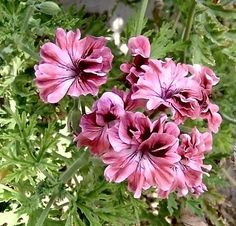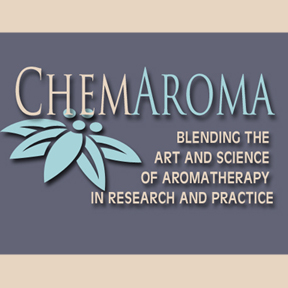|
EO Profile: Geranium (Pelargonium graveolens) From Lyn As part of our current work on the “Aromatherapy Triage” for caregivers that Bill and I are researching, I’m choosing essential oils that are easy to obtain, not terribly costly and very effective, both in simple blends and as single aromatherapeutic tools. I chose Geranium because it mimics many of the lovely effects of Rose oil without the cost, but it definitely has its own personality. It has an almost citrus-y undertone that is uplifting. It's traditionally used for healthy skin (repair or rejuvenation), as well as widely known for its emotional support. It commonly promotes peace and a decrease in stress, especially in regards to releasing negativity, and is great for tension and overall well-being. In other words, it’s perfect for Aromatherapy Triage. Here’s an excerpt from our article, Chemaroma’s Essential Oil Triage for Caregivers, suggesting how to use essential oil of Geranium for alleviating frustration and stress: Hands-on exercise (Lyn Belisle) Time: Two minutes Sit comfortably at a table or desk. Put a drop of Geranium (Pelargonium graveolens) EO into your palm and rub your palms together briskly to distribute and warm the oil. Rest your elbows on the desk and place your palms over your ears, cupping them lightly to shut out sound. Wait a few moments until you can hear your heartbeats. Count thirty beats. Then slowly take your hands down and let them fall loosely at your sides while dropping your shoulders. Repeat as needed. Dr. Bill Kurtin – Why it works Geranium EO has long been known to induce hypotension, or lowered blood pressure. The primary component in geranium EO is citronellol, a monoterpene alcohol. Very recently published controlled studies using citronellol and laboratory rats have confirmed that this hypotensive effect is due to the interaction of the terpene with critical protein targets (receptors) that control the relaxation of muscle cells in the walls of blood vessels. The interaction causes the vessels to relax and widen, and thus blood pressure decreases.
2 Comments
|
Dr. Bill Kurtin is a biochemist, with a distinguished record of teaching and research at Trinity University in San Antonio, TX. Archives
March 2020
Categories
|


 RSS Feed
RSS Feed